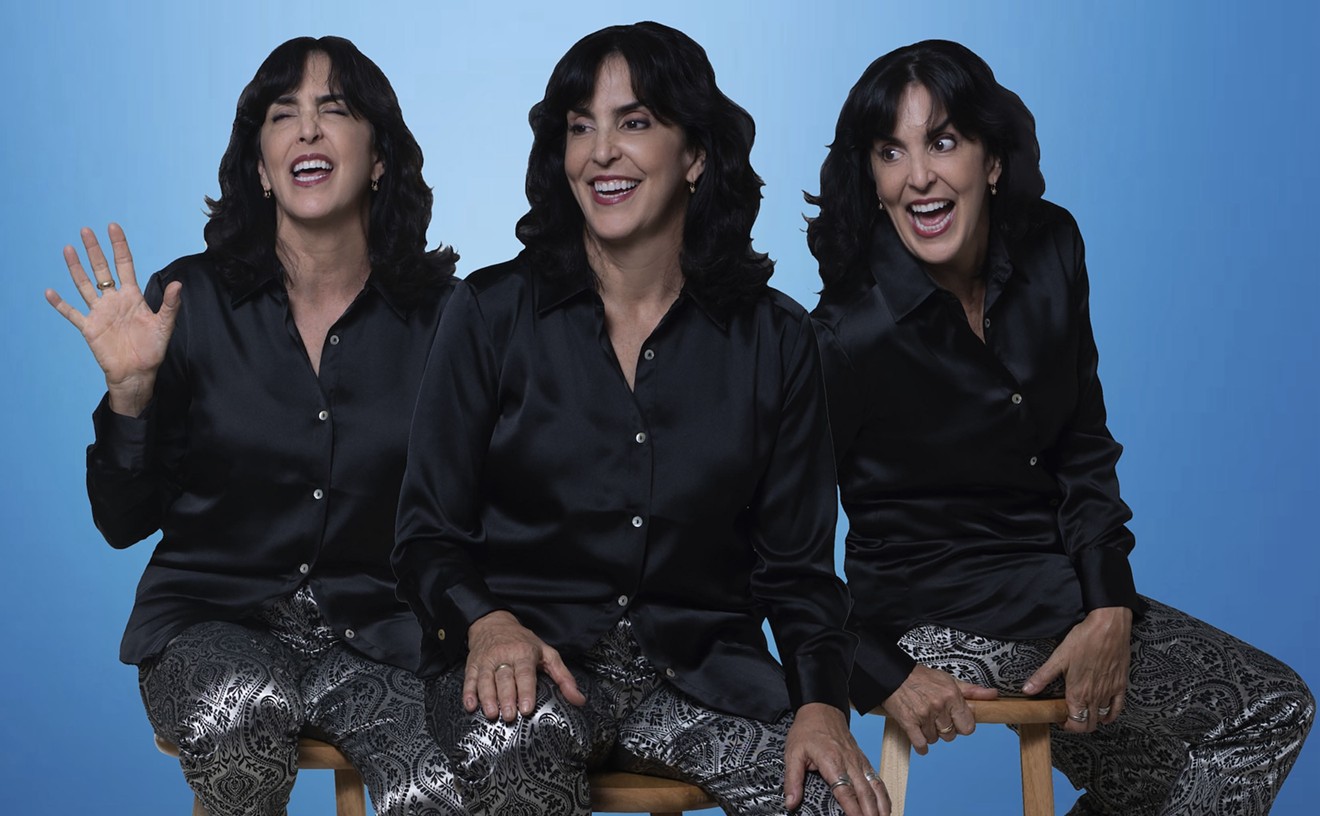Jumping right into conversation with Anna Muylaert, whose latest film Que Horas Ela Volta (The Second Mother) is making waves worldwide and was just picked as Brazil's Foreign Oscar submission, was as easy as pie. With her film playing the Brazilian Film Festival of Miami earlier this month and opening at the Tower Theater and Miami Beach Cinematheque on September 25, we got to have a phone interview while she was visiting the city for the fest. Our chat immediately led into making the film and what it was like being a woman making a movie so distinctly about and for women in an industry that seems hell-bent on criticizing her.
In Brazil, she's had multiple instances of people both misinterpreting her film — which focuses on the strained relationship between a live-in housekeeper (Regina Casé) and her estranged daughter (Camila Márdila) — and attacking the characters within the film.
"I'm stepping in places that no woman in cinema here has ever stepped, and it's not normal for them to know how not easy it is for me," she says about a recent incident in which two of her friends — male filmmakers Lírio Ferreira and Cláudio Assis — took over a Q&A about her film and complained that her protagonist and leading actress was fat. "But it's useful to have this discussion so that we can start fighting for our own space."
And she's absolutely right. The last film directed by a woman pushed forward by Brazil came 30 years ago, so it's unsurprising to hear this kind of antagonism toward her work. "If we get this nomination, that would be so big for us women," she says.
"It came out 20 weeks ago and it's been a national commotion. It's talked about in other countries now, and it's a nice film and people love it, but in Brazil, it's a national party. Everybody is trying to raise the salary of the nanny, or move the nanny from a small room to a better room, and the place of the nanny is being illuminated and it's changing. You can't even imagine what's happening here," Muylaert explains about the effects her film is having in her country.
"I wanted to make a mirror so that people would look at themselves and change and I'm very glad that's happening. I thought this was a rich subject and it took me almost twenty years to get the proper plot. There's the social gap of the nanny which is a major problem in Brazil and there's the lack of education which makes the social gap never end. And I had the fortune of being a mother and realizing that it's the most important job. I realized masculine work was much more valued than the womanly work, and that it isn't more important to make movies than it is to raise a kid, so that was a way to talk about this."
What she proposes about male and female roles goes hand in hand with what modern cinema presents as well. Rarely, if ever, do you witness a child chastising their father for working to support them while mothers face criticism if they do the same (particularly single mothers on screen). Muylaert says she's had multiple journalists discuss the subject with her, specifically telling her that they understand the issue of trying to balance work and children. "We're the ones who work. We're the ones who raise the kids. And who's going to deal with them if it's not us?" she asks. "This isn't a subject that's exclusively Brazilian or American either. I'm lucky enough to be a writer and a screenwriter a lot of the time, so I can be inside the house and with them a lot, but a lot of women can't."
Our conversation eventually turned back to the fact that this was a very woman-centric production. We first talked about the static camerawork in The Second Mother — the camera only moves on rare occasion to follow a character, otherwise it remains a passive observer: "I had a very strong director of photography, Barbara Alvarez. One of her other films that I really liked featured a lot of handheld camerawork and she's always behind the main character, so a lot of things happen behind him or behind a closed door where you're shut out of. And this inspired me to keep the camera distant here. She rarely uses artificial light too, it's all very natural and she's a very intelligent person. Sometimes I even wanted to move the camera and she didn't let me."
Then we discussed the fact that her editor was also a woman. "You know, that wasn't even planned, but Karen Harley is the best editor in the country for sure," she boasts of her collaborator. "The problem with making the movie was taking out all of the beautiful things we had shot, because the whole script on screen would have been three hours and we had to take out over an hour."
"I didn't choose them because they were women," Muylaert says. "They were all just really good, and the story just happens to be about women and they're all very strong in their own way. Although there is a lot of machismo, we are all strong and changing, not even just Brazil, but the whole world. And these men who come along thinking they're amazing just because they're men aren't doing their jobs well enough and I think women are very close to just not allowing this behavior anymore."
But it's not solely about the way male filmmakers believe they are the end all, be all, in the filmmaking industry. It's also about representation. As Anna Muylaert says as our conversation comes to a close, "Even when men write nice women and give them good characters, they're always cast as skinny and beautiful. And that's not real." There's a lot to say about negative body image and how films made by men in particular affect women, and she's not even remotely afraid to discuss it.
"All the real women think they're fat and they're ugly and go on diets because they are not what they see in film. And it's good to see in my movie that these women aren't models. They're old and young and just normal. I think that's something very healthy for us because women are trapped by this model created by men. And when these men, trying to be funny, call Regina, who is a sixty year old woman who has had kids, ugly or fat or say she's wearing an ugly dress, it's ridiculous. These are the kind of words that you would never hear someone say about men. It's something that makes every woman feel guilty. Our bodies shouldn't have to conform to what men want, and we need to talk about it."
Follow Juan Barquin on Twitter @woahitsjuanito.
[
{
"name": "Air - MediumRectangle - Inline Content - Mobile Display Size",
"component": "19274298",
"insertPoint": "2",
"requiredCountToDisplay": "2"
},{
"name": "Editor Picks",
"component": "17482312",
"insertPoint": "4",
"requiredCountToDisplay": "1"
},{
"name": "Inline Links",
"component": "18711090",
"insertPoint": "8th",
"startingPoint": 8,
"requiredCountToDisplay": "7",
"maxInsertions": 25
},{
"name": "Air - MediumRectangle - Combo - Inline Content",
"component": "17482310",
"insertPoint": "8th",
"startingPoint": 8,
"requiredCountToDisplay": "7",
"maxInsertions": 25
},{
"name": "Inline Links",
"component": "18711090",
"insertPoint": "8th",
"startingPoint": 12,
"requiredCountToDisplay": "11",
"maxInsertions": 25
},{
"name": "Air - Leaderboard Tower - Combo - Inline Content",
"component": "17482313",
"insertPoint": "8th",
"startingPoint": 12,
"requiredCountToDisplay": "11",
"maxInsertions": 25
}
]











